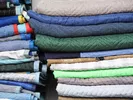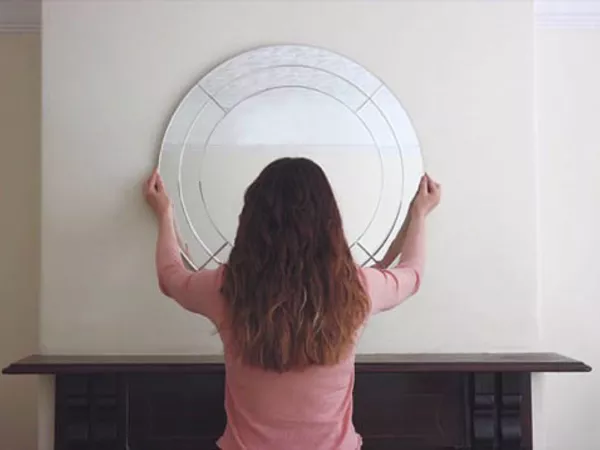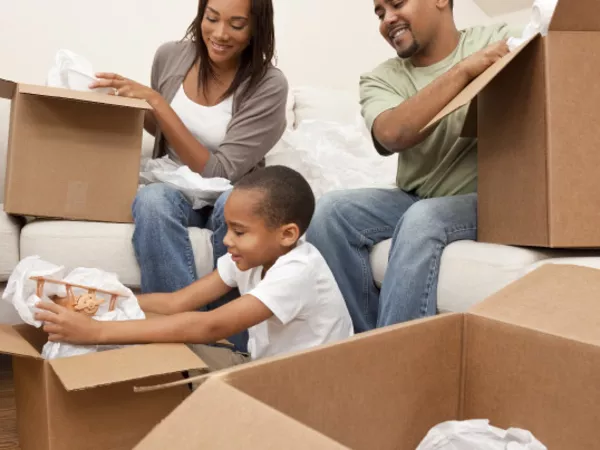Why You Need Moving Blankets for Your Move
What makes moving blankets a must have?
If you’re moving furniture and other large household items, you need to figure out a way to protect them. Moving blankets are the industry standard, and for good reason. They provide padding for furniture and belongings — protecting the finish from scratches, preventing dings to corners, and reducing friction between pieces during transit. And they’re also incredibly useful during the loading process (and even after your move). Keep reading to see all the ways you can use moving blankets, where to get them, and how many to buy.

What is a moving blanket?
Moving blankets are thick, textile covers that protect furniture and other items during a move. They come in different thicknesses, from single-ply to multi-layer, and are typically made from blends of polyester, nylon and cotton.
5 ways to use them
Here are some ways to use moving blankets while you pack and load:
Wrapping furniture and other items
Cover items completely to protect them from dings during loading and unloading and to stop pieces from rubbing together during transit.
Sliding heavy pieces
Place them under heavy items, like dressers, and use them to slide objects through your home without damaging your floors.
Protecting banisters and doorways
Tape them up to prevent knicks in wooden banisters and door jambs.
Filling gaps
Use them to fill gaps between items. The tighter the fit of your shipment, the less likely anything will move during transit.
Covering the shipment
Once everything is loaded, cover the entire shipment to protect against any dust that might settle during transport.
Why you should use moving blankets instead of other materials
Because moving blankets are specifically designed for moving, they hold up better than other materials you may see recommended. While it is possible to use your own blankets or linens, they’ll likely get dirty or damaged. And they may not be as useful as moving blankets for all tasks.
Paper padding is another frequently suggested replacement. It’s great for many things (see our recommendations here), but it can’t do everything moving blankets can. So even if you’re wanting to primarily use paper padding, we still suggest getting a few blankets for your move.
How many will you need?
The best way to determine how many to buy is to know how many things you’ll use them for. In general, small items like chairs and nightstands will use one blanket, while large items like couches and dining tables will use 3-4 (and be sure to account for any you’ll need to protect doors and floors). Since many retailers often sell them in packs of 12, you should be able to get a rough enough estimate to know how many to buy.
Where to buy
You can find blankets from online retailers, big-box hardware stores or any store that sells moving supplies. Since they can be heavy, it’s a good idea to purchase them somewhere that provides free shipping (or shop in person to save on shipping costs). Learn other ways to save on moving supplies.
Can I get used blankets?
Because fabric can hold onto dirt and potentially house vermin, it’s usually best to buy new blankets. However, if you can borrow them from someone you trust or make sure they’re clean before using them, you should be just fine!
What to do with them after the move
Before you reuse or donate moving blankets, wash them on gentle with cold water and hang them to dry. Then you can repurpose them in many ways:
- Give them to a friend who is moving
- Use them for furniture covers when painting or crafting
- Use them for pet bedding (or donate to an animal shelter)
- Recycle them at a textile recycling location
- Store them for a future move
Questions?
If you have any questions about using moving blankets, leave us a comment below. We’re here to help you as you prepare for your move! Want more moving resources? Check out our packing tips for advice on packing every item in your home.
More articles you might like...



